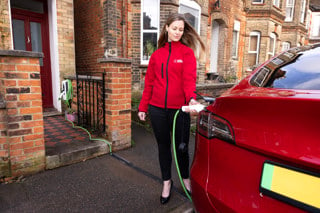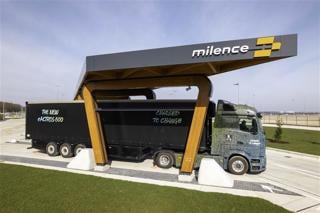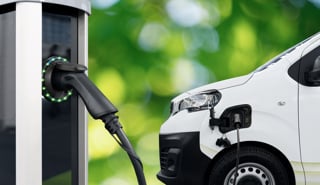Fleet managers are increasingly having to counter scare stories about electric vehicles (EVs), with a flood of misinformation targeting the powertrain, according to the Association of Fleet Professionals (AFP).
It says that a handful of people in every organisation are seizing on these stories and sharing them with other employees, putting fleet managers who are trying to electrify operations under pressure.
“In most cases, there is nothing malicious about the actions of these people,” said Paul Hollick chair of the AFP. “They just don’t know much about EV technology, believe what they read online, and are subsequently fearful of scenarios involving EVs that are vanishingly unlikely to actually happen.”
Hollick explains that in some sections of the media, it seems to have become popular to create scare stories about EVs – that they catch fire easily and cannot be extinguished, that they will all run out of power simultaneously in cold weather and block motorways, that they are more environmentally damaging than internal combustion engine (ICE) cars and vans, and that current models will be worthless in a matter of years.
“Most recently, we’ve seen the case of a ‘runaway’ EV that the police had to bring to a stop using their own vehicles which appears to have been nothing of the sort, with the driver reportedly accused of fabricating the emergency,” he added.
“We’ve talked quite a lot in recent times about how fleet managers have spent the last couple of years achieving easy wins in terms of EV adoption and we’re now into a phase that is a much more of a grind.
“That means tackling more difficult areas such as van electrification and building operations in more geographically remote areas.
“Part of this grind involves pushing back against EV misinformation.”
Fleet managers within the AFP are gathering and sharing EV facts and figures that they can use whenever one of these scare stories is raised by one or more employees.
“It’s become a process of reassurance,” continued Hollick. “The overwhelming experience of most fleets is that once drivers start using EVs, they love them and few would return to an ICE vehicle.
“The objections tend to come from those with limited or no exposure.
“It’s not unknown for fleet managers who are successfully running hundreds of EVs to be solemnly warned by a colleague that electrification will never work.”
There is an assumption that the misinformation will decline over time as EVs become more part of everyday life.
However, Hollick warned: “There’s also a potential danger that we will see a few longer-term holdouts who will continue to believe EV conspiracy theories.
“In those instances, there is little that fleet managers can do other than present them with the facts.
“No doubt a century or more ago, there were people who stuck with horses rather than drive a Model T.”























Lloydy1980 - 27/03/2024 13:04
People are not stupid. Most people get stories from those who have owned or own them. I work on a construction site where EV vans are used. Many issues with batteries dying for no reason, not being able to open or move the van due to a completely dead battery, one stopping dead on a motorway slip road (luckily the off ramp not the on). The range is never anywhere near what is quoted, a mate has a i4 M50 2023, barely gets 200 miles when its cold, for a 72k car that's disgusting. Those who do have EVs that i work with are re-ordering their company cars as petrol-hybrids as they are sick to death of their EVs, and they are not cheap ones either, upwards of 55k most of them. ONLY reason they had these was due to BIK benefits, they would not have had if it was their own money!